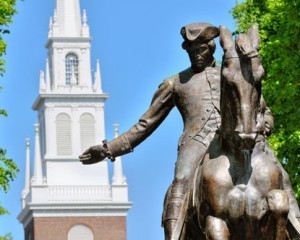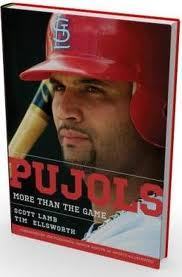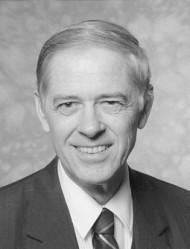Justin Taylor's Blog, page 272
October 24, 2011
Social Justice Debate: Jim Wallis v. Albert Mohler
This Thursday (October 27, 2011) Jim Wallis and Albert Mohler will debate the question, Is Social Justice an Essential Part of the Mission of the Church?, at Trinity Evangelical Divinity School. It will begin at 7 PM (central).
The event will also be livestreamed.
Doing Theology
James Grant has a nice basic explanation of some of the key fields of study in theology (exegetical theology, biblical theology, systematic theology, historical theology, philosophical theology), along with some suggested reading in each category.
The Quiet Awakening
 Boston is the home of a major spiritual awakening. More people have come to Christ in Boston in the last three decades than during the Great Awakening, but it has largely gone unnoticed, because it is occurring primarily among African, Chinese, Korean, and Hispanic peoples. There are over 50 different African congregations in Boston and, indeed, on any given Sunday in Cambridge, Massachusetts, more people worship Christ in a language other than English than in English. It has been called the "quiet revival."
Boston is the home of a major spiritual awakening. More people have come to Christ in Boston in the last three decades than during the Great Awakening, but it has largely gone unnoticed, because it is occurring primarily among African, Chinese, Korean, and Hispanic peoples. There are over 50 different African congregations in Boston and, indeed, on any given Sunday in Cambridge, Massachusetts, more people worship Christ in a language other than English than in English. It has been called the "quiet revival."
I am convinced that the greatest source of renewal in the North American church will be found in these emerging ethnic churches. Pastors across this country should begin planting ethnic congregations in their facilities and nurturing their growth.
(You can read the whole post here.)
October 23, 2011
Resources for Reformation Day
[image error]
This Sunday (October 31) is Reformation Day, commemorating and celebrating the Reformation. It takes place each year on the anniversary of Martin Luther's nailing of the 95 Theses on the Wittenberg Door on October 31, 1517.
For pastors (and others) who might want some resources in preparation, here are a few recommendations:
1. Last year I interviewed Carl Trueman about the 95 Theses. It's a nice way to get a brief introduction to what happened.
2. There are a number of accessible introductions to the Reformation, but if you want to focus on Luther's life and theology, a great choice would be Stephen Nichols's Martin Luther: A Guided Tour of His Life and Thought. J. I. Packer writes, "For half a century, Bainton's Here I Stand has been the best introduction to Luther. Stephen Nichols's engaging volume is in many ways better than Bainton's for this purpose. It deserves to be widely read." Nichols also has a good introduction to the 95 Theses.
3. The 2003 movie on Luther starring Joseph Fiennes is surprisingly well-researched and reconstructed. Here is their depiction of the 95 Theses:
4. The Diet of Worms (1521) was where Luther gave his famous "Here I Stand" speech. (Although "Diet of Worms" sounds like an exotic diet, the Imperial Diet was the general assembly of the imperial estates of the Holy Roman Empire, and Worms [pronounced more like verms] was a German town on the western bank of the Rhine River). This is a fascinating and momentous event in history. Here's a great website for learning more about what happened.
The clip below from the Luther film portrays Luther arriving in Worms after completing his 15-day, 300-mile journey from Wittenberg on April 17, 1521. At 4 PM he was taken to the Bishop's Court and waited for two hours to see the Emperor. Then at 6 PM he appeared before the Diet, led by Charles V, the 21-year-old Emperor of the Holy Roman Empire, and Johann Eck, his spokesman. Along with them were the Roman advisers and representatives, Spanish troops, and the German political elite.
Luther was asked two questions: Do you acknowledge having written these twenty books lying here? Are you prepared to retract them as a whole or in part?
Luther was taken aback; he was expecting debate, not a yes or no answer. After Luther's lawyer Hieronymus Schurff objected, "Let the titles of the books be read!" Luther responded in a barely audible voice: "The books are all mine and I have written more."
As to the second question, Luther responded: "This touches God and his word. This affects the salvation of souls. Of this Christ said, 'He who denies Me before men, him will I deny before My father.' To say too little or too much would be dangerous. I beg you, give me time to think it over."
The assembly reluctantly gave him 24 hours to think it through. He responded the next evening with his famous answer. You can watch the depiction below:
For an audio overview using good historical sources, you can't beat Max McLean's Here I Stand album. They have kindly made the whole thing available for free on YouTube:
1. Introduction
2. The Road to Reformation
3. Luther's Prayer
4. Here I Stand
5. Eck's Response to Luther
6. Luther's Final Response
7. Conclusion
8. Sources and Closing Comments
Total Time: 24 minutes
5. I have mentioned in previous posts some good books for children related to Luther. For example, the illustration at the top of this post was painted by Greg Copeland (and used by permission of Concordia Publishing House) and can be found in Paul Maier's book for older kids, Martin Luther: A Man Who Changed the World. I've also posted on the new graphic novel about Luther.
But I would be remiss not to mention a brand-new children's book published by Crossway, written by R.C. Sproul, and illustrated by T. Lively Fluharty, called The Barber Who Wanted to Pray. It tells the true story of Luther's writing A Simple Way to Pray in response to his barber's request for help with his prayer life. Even books like these are designed to be read to children, Dr. Sproul has said, "Ultimately, my target audience in a children's story is the parents who are reading the stories to their children." We can all learn a lot from this simple book. You can explore it below:
Luther—like all of us—was a flawed man with feet of clay. He didn't see or say everything right. But God used him to recover the gospel and to reform the church, and it is fitting to thank God for this remarkable man and God's grace to him and through him.
October 22, 2011
Who Is Albert Pujols?
 Scott Lamb and Tim Ellsworth tell the story of one of the best baseball players of all time—and also a brother in Chris—in Pujols: More Than the Game.
Scott Lamb and Tim Ellsworth tell the story of one of the best baseball players of all time—and also a brother in Chris—in Pujols: More Than the Game.
After only ten seasons, the St. Louis Cardinals' Albert Pujols is already one of the greatest players to have ever laced up a pair of spikes. But when adulation and glory come his way, Pujols is quick to credit another—to point people to his hero. "At the end of the day," he says, "as long as I glorify Him, and those 45,000 people know who I represent . . . that's what it's about. It's about representing God." In Pujols: More Than the Game, authors Tim Ellsworth and Scott Lamb will satisfy fans who like their baseball slathered in stats and stories . . . while at the same time, shedding light on the faith that makes it all possible.
"Albert Pujols has a chance to be known as the greatest player in the history of baseball. There are numerous statistical measurements to make the point, including the simple point that through age thirty he has more homers than Babe Ruth, more hits than Pete Rose, more RBIs than Hank Aaron, and more runs than Rickey Henderson did at the same age. Yes, it's okay to think about that for a moment. But Pujols' argument for greatest player ever isn't nearly as interesting or significant as the fact that there even is an argument. That's because perhaps the most amazing thing about Albert Pujols is that less than two years before he began one of the greatest rookie seasons in baseball history, he was a non-prospect."
—Joe Posnanski, Senior Writer at Sports Illustrated (included in the Foreword)
"Pujols is full of nuggets. Given that the action in the famous poem 'Casey at the Bat' starts with 'Cooney died at first, and Barrows did the same,' I enjoyed reading that Albert Pujols asks opposing runners at first base, 'If you died today, where do you think you're going to go?' Lamb and Ellsworth lucidly describe both the season-by-season baseball exploits of Pujols and the impact he's having on some lives for eternity."
—Marvin Olasky, Editor-in-chief, World
Do Our Worship Songs Have Room for Lament?
Carl Trueman, "What Can Miserable Christians Sing?" in The Wages of Spin (pp. 159-160):
 Perhaps . . . [the Western church] has drunk so deeply at the well of modern Western materialism that it simply does not know what to do with such cries and regards them as little short of embarrassing.
Perhaps . . . [the Western church] has drunk so deeply at the well of modern Western materialism that it simply does not know what to do with such cries and regards them as little short of embarrassing.
A diet of unremittingly jolly choruses and hymns inevitably creates an unrealistic horizon of expectation which sees the normative Christian life as one long triumphalist street party—a theologically incorrect and a pastorally disastrous scenario in a world of broken individuals.
Has an unconscious belief that Christianity is—or at least should be—all about health, wealth, and happiness corrupted the content of our worship?
. . . In the psalms, God has given the church a language which allows it to express even the deepest agonies of the human soul in the context of worship.
Does our contemporary language of worship reflect the horizon of the expectation regarding the believer's experience which the psalter proposes as normative?
If not, why not?
Is it because the comfortable values of Western middle-class consumerism have silently infiltrated the church and made us consider such cries irrelevant, embarrassing, and signs of abject failure?
How the Psalms Both Express and Shape the Emotions of God's People
[image error]
From Jack Collins's "Introduction to the Psalms" in the ESV Study Bible:
The Psalter is the songbook of the people of God in their gathered worship.
These songs cover a wide range of experiences and emotions, and give God's people the words to express these emotions and to bring these experiences before God.
At the same time, the psalms do not simply express emotions: when sung in faith, they actually shape the emotions of the godly. The emotions are therefore not a problem to be solved but are part of the raw material of now-fallen humanity that can be shaped to good and noble ends. The psalms, as songs, act deeply on the emotions, for the good of God's people. It is not "natural" to trust God in hardship, and yet the Psalms provide a way of doing just that, and enable the singers to trust better as a result of singing them. A person staring at the night sky might not know quite what to do with the mixed fear and wonder he finds in himself, and singing Psalm 8 will enrich his ability to respond.
The Psalms also provide guidance in the approach to worship: at times they offer content that is difficult to digest, calling on God's people to use their minds as well as their hearts and voices.
They show profound respect for God as well as uninhibited delight in him.
They enable the whole congregation to take upon themselves, to own, the troubles and victories of the individual members, so that everyone can "rejoice with those who rejoice and weep with those who weep" (Rom. 12:15).
They enable God's people more fully to enjoy being under his care, and to want more keenly to be pure and holy, seeing purity and holiness as part of God's fatherly gift rather than as a burden.
October 21, 2011
Thomas Oden's Dream Come True
 From a 1990 interview in Christianity Today:
From a 1990 interview in Christianity Today:
You have told about a dream in which you were walking in the New Haven cemetery. You came across your own tombstone and the epitaph read, "He made no new contribution to theology." Were you happy or distressed to read that?
In my dream I was extremely pleased, for I realized I was learning what Irenaeus meant when he warned us not to invent new doctrine. This was a great discovery for me. All my education up to this point had taught me that I must be compulsively creative. If I was to be a good theologian I had to go out and do something nobody else ever had done. The dream somehow said to me that this is not my responsibility, that my calling as a theologian could be fulfilled through obedience to apostolic tradition.
How to Have True Christian Unity
[image error]
A. W. Tozer:
Has it ever occurred to you that one hundred pianos all tuned to the same fork are automatically tuned to each other? They are of one accord by being tuned, not to each other, but to another standard to which each one must individually bow.
So one hundred worshippers meeting together, each one looking away to Christ, are in heart nearer to each other than they could possibly be were they to become "unity" conscious and turn their eyes away from God to strive for closer fellowship.
—The Pursuit of God [1948] (Wilder Publications, 2009), p. 63.
HT: Dane Ortlund, Defiant Grace: The Surprising Message and Mission of Jesus, p. 86.
Why We Find Pride in Others So Annoying
C.S. Lewis, Mere Christianity, chapter 8:
There is one vice of which no man in the world is free; which every one in the world loathes when he sees it in someone else; and of which hardly any people, except Christians, ever imagine that they are guilty themselves.
I have heard people admit that they are bad-tempered, or that they cannot keep their heads about girls or drink, or even that they are cowards.
I do not think I have ever heard anyone who was not a Christian accuse himself of this vice.
And at the same time I have very seldom met anyone, who was not a Christian, who showed the slightest mercy to it in others.
There is no fault which makes a man more unpopular, and no fault which we are more unconscious of in ourselves.
And the more we have it ourselves, the more we dislike it in others.
The vice I am talking of is Pride. . . .
. . . In fact, if you want to find out how proud you are the easiest way is to ask yourself, "How much do I dislike it when other people snub me, or refuse to take any notice of me, or shove their oar in, or patronise me, or show off?"
The point is that each person's pride is in competition with every one else's pride.
It is because I wanted to be the big noise at the party that I am so annoyed at someone else being the big noise.
Justin Taylor's Blog
- Justin Taylor's profile
- 44 followers



